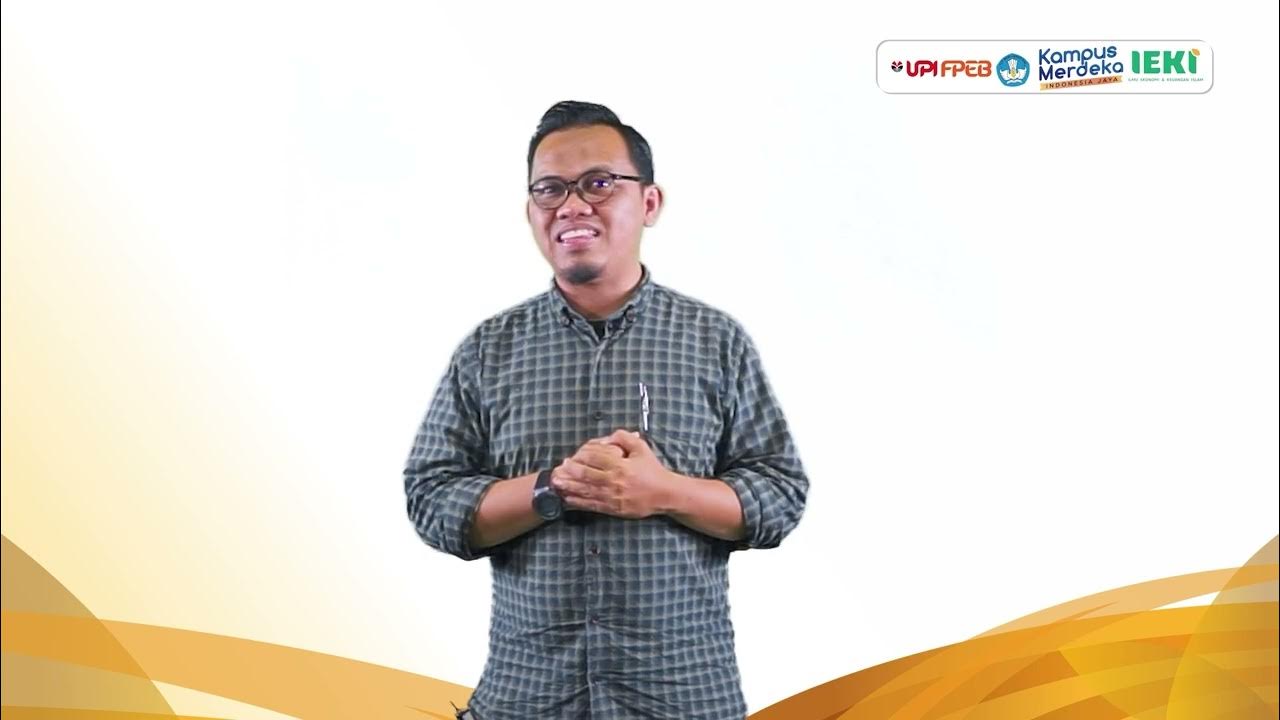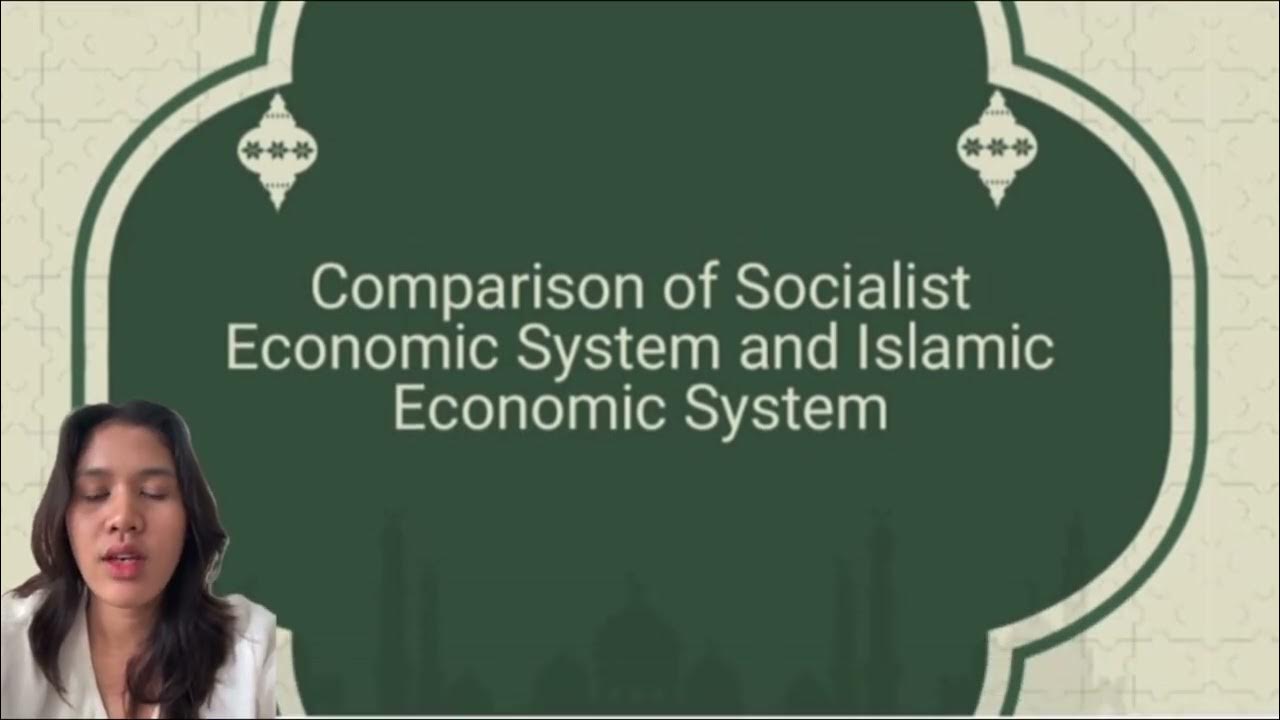13 Februari 2021
Summary
TLDRThis video delves into the principles of Islamic economics, emphasizing the balance between individual wealth ownership and collective welfare. It highlights the importance of ethical trading, the prohibition of usury (riba), and the role of zakat in ensuring social equity. The speaker discusses how the market, state, and society should cooperate to create a just and balanced economy, guided by Islamic moral values. Key concepts like the stewardship of wealth, public welfare, and the need for fairness in business transactions are explored, offering insights into how an Islamic economic system can foster both material and spiritual well-being.
Takeaways
- 😀 Islamic economics aims to create harmony between material and spiritual needs, balancing individual wealth control with social obligations like zakat.
- 😀 Unlike capitalism, where individuals control wealth, Islamic economics emphasizes that wealth belongs to Allah, and humans act as stewards of this wealth on earth.
- 😀 Zakat, charity, and the sharing of wealth are integral to the Islamic economic system, promoting the equitable distribution of resources.
- 😀 Ownership in Islam is considered for the benefit of society, with no individual ownership of public goods, which should be used for public welfare.
- 😀 The concept of fair and proportional justice is fundamental to Islamic economics, ensuring that wealth is distributed in an equitable manner among individuals and communities.
- 😀 Islam encourages work and productivity, with the idea that work should be sincere, efficient, and professional, while avoiding excess and waste.
- 😀 Balance in life is crucial—Islam stresses the importance of maintaining health, rest, and spiritual well-being alongside economic pursuits.
- 😀 The principle of solidarity and empathy is essential in Islamic economics, with the community responsible for helping the poor through zakat, infaq, and charity.
- 😀 Usury (riba) is strictly prohibited in Islam, with profit-sharing systems like mudharabah and musyarakah being preferred alternatives.
- 😀 The role of the government in Islamic economics is to regulate market practices, ensure fair pricing, and intervene when necessary to prevent exploitation, such as monopolies.
- 😀 Social security and corporate social responsibility (CSR) are important aspects of the Islamic economic model, ensuring that wealth circulates among all members of society and benefits the poor.
Q & A
What is the main goal of Islamic economics?
-The goal of Islamic economics is to provide harmony in life, balancing spiritual and material aspects. It seeks to harmonize human control over wealth with the obligation to share with others, ensuring both world and afterlife prosperity.
How does Islamic economics differ from capitalism?
-Islamic economics allows humans to control wealth but within limits, emphasizing social obligations and sharing. In contrast, capitalism focuses on individual ownership and the pursuit of wealth without regard to social obligations.
What role does zakat play in Islamic economics?
-Zakat is a key element of Islamic economics, intended to ensure wealth is shared with others, particularly the poor. It is viewed as a way to balance individual prosperity with social responsibility and is often mentioned alongside prayer in the Quran.
How does the Islamic economic system ensure justice in wealth distribution?
-Islamic economics emphasizes fair, proportional distribution of wealth. The concept of fairness in Islamic economics means wealth is distributed according to need, with a focus on proportionality rather than equality.
What does the Islamic concept of 'caliph' mean in the context of economic ownership?
-In Islam, humans are considered caliphs (representatives) of Allah on earth. This means that while individuals may own property, they must remember that it ultimately belongs to Allah and should be used justly and for the benefit of all.
How does Islamic economics view excessive accumulation of wealth?
-Islamic economics discourages excessive accumulation of wealth. It teaches that individuals should be moderate in their pursuit of material gains, avoiding wastefulness and ensuring that resources are shared fairly.
What is the importance of balance in Islamic economics?
-Balance is essential in Islamic economics. It encourages not only a balance between material and spiritual pursuits but also a balance in work and rest, consumption and saving, and individual freedom and social responsibility.
How does the Islamic economic system handle monopolies?
-Islamic economics opposes monopolies, which can lead to unfair pricing and exploitation of consumers. The government is expected to intervene when monopolies form, ensuring that the market remains competitive and fair.
What role does the government play in Islamic economics?
-In Islamic economics, the government has a role in regulating economic activities, ensuring fairness, providing public services, and preventing exploitation. It can also intervene in markets to maintain price stability and address economic disparities.
What is the relationship between Islamic economics and social security?
-Islamic economics includes a strong focus on social security, ensuring that the needs of the poor and disadvantaged are met. This includes zakat and other forms of charitable giving, as well as policies to ensure fair distribution of wealth.
Outlines

This section is available to paid users only. Please upgrade to access this part.
Upgrade NowMindmap

This section is available to paid users only. Please upgrade to access this part.
Upgrade NowKeywords

This section is available to paid users only. Please upgrade to access this part.
Upgrade NowHighlights

This section is available to paid users only. Please upgrade to access this part.
Upgrade NowTranscripts

This section is available to paid users only. Please upgrade to access this part.
Upgrade NowBrowse More Related Video

Konsep Hak dan Kewajiban dalam Fikh Mu'amalah

EKONOMI ISLAM, ZAKAT, WAKAF, DAN PAJAK Oleh Ulul Huda, S.Pd.I., M.Si.

Kritik Atas Sistem Ekonomi Kapitalis

FAQ EKONOMI SYARIAH #2: Perbedaan Ekonomi Konvensional & Syariah

CTU241 Kuliah 6

Difference between islamic economic system and sosialist economic system
5.0 / 5 (0 votes)